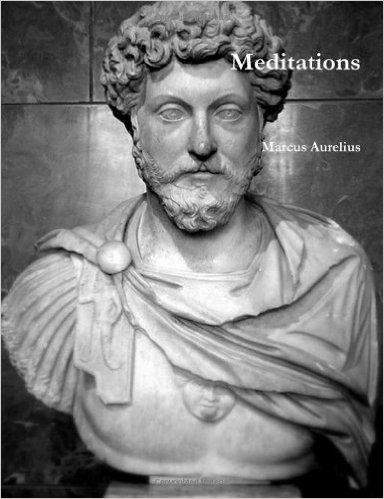There is a voyeuristic aspect to reading “Meditations”.
Notes in this composition, are part of Marcus Aurelius’s personal philosophical studies during 10 rough years of his life ( also his last decade ) when he faced many stressful situations – like fighting on the frontier, the revolt of Cassius, and the death of his wife.
During the time the emperor wrote his observations, philosophy was a study on questions of life, such as, the complications involved in making ethical choices, enabling a just and fair society, responding to suffering and loss, and coming to terms with the prospect of death. A study in philosophy thus, seems like a natural course for the Roman emperor to take, as he dealt with difficult situations.
“Meditations” contains a lot of repetition of thoughts. In fact, the notes lack original train of thought. Instead, Marcus’s notes are re-analysis of familiar philosophical thoughts and some rather elementary deductions.
To me, reading “Meditations”, felt like a journey through an emperors quest for self improvement and self exploration. It is saturated with thoughts of an individual intent on understanding and handling stress and confusions of life and becoming a better human being. The entries in this book, appear to be notes for self, to serve as ready reference and reminder’s of personal philosophical beliefs and inclinations. The style of writing is also akin to an individual taking notes – some entries are prolonged philosophical points, some mimic poetry and some are just straight forward to-do’s.
While there is some continuity in the thoughts, the series of books does not mark a logical transition from one thought to another.
This deeply private journey of an emperor does make for a rewarding read, although I wonder if he’d have ever approved of it’s publication. It is a testament of the Roman emperor’s thoughts, that what he wrote long ago for his own use, is still meaningful today.
“Meditations” is one of those rare versatile books, which allows fresh rewards, each time you revisit.
____________________________________________
Some quotes from “Meditations” :
“When jarred, unavoidably, by circumstances, revert at once to yourself, and don’t lose the rhythm more than you can help. You’ll have a better grasp of the harmony if you keep on going back to it.”
“The things you think about determine the quality of your mind. Your soul takes on the color of your thoughts.”
“The present is the same for everyone; its loss is the same for everyone; and it should be clear that a brief instant is all that is lost. For you can’t lose either the past or the future; how could you lose what you don’t have? Remember two things:
- that everything has always been the same, and keeps recurring, and it makes no difference whether you see the same things recur in a hundred years or two hundred, or in an infinite period;
- that the longest-lived and those who will die soonest lose the same thing. The present is all that they can give up, since that is all you have, and what you do not have, you cannot lose.”
” People try to get away from it all—to the country, to the beach, to the mountains. You always wish that you could too. Which is idiotic: you can get away from it anytime you like. By going within. Nowhere you can go is more peaceful—more free of interruptions—than your own soul. Especially if you have other things to rely on. An instant’s recollection and there it is: complete tranquillity. And by tranquillity I mean a kind of harmony. So keep getting away from it all—like that. Renew yourself. But keep it brief and basic. A quick visit should be enough to ward off all < . . . > and send you back ready to face what awaits you. ”
“Doctors keep their scalpels and other instruments handy, for emergencies. Keep your philosophy ready too—ready to understand heaven and earth. In everything you do, even the smallest thing, remember the chain that links them. Nothing earthly succeeds by ignoring heaven, nothing heavenly by ignoring the earth.”
“What is it in ourselves that we should prize? I think it’s this: to do (and not do) what we were designed for. That’s the goal of all trades, all arts, and what each of them aims at: that the thing they create should do what it was designed to do. The nurseryman who cares for the vines, the horse trainer, the dog breeder—this is what they aim at. And teaching and education—what else are they trying to accomplish?”
“Just that you do the right thing. The rest doesn’t matter.”
